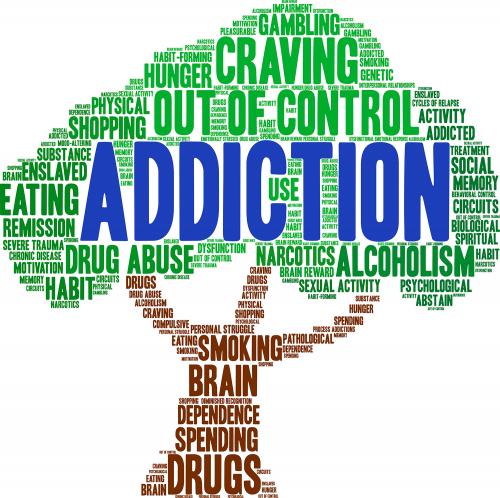

Addiction is a psychological and physical inability to stop consuming a chemical, drug, activity, or substance, even though it is causing psychological and physical harm.
The term addiction refers to dependence on legal substances such as tobacco, alcohol, and legally prescribed medications (e.g., opiates and benzodiazepines) and illegal substances (e.g., cocaine, heroin, methamphetamines, and illegally obtained or diverted medications). It also refers to marijuana which is legal in some states and illegal in others. When a person cannot stop taking a drug, they are considered to have a dependence on that substance.
Addictions can also be behavioral and include an inability to stop participating in activities, such as gambling, eating, sex, internet use, gaming, shopping, or working.
Addiction is a chronic disease and has an ever-evolving and deepening pattern. When a person experiences addiction, they eventually lose control over how they use a substance or involve themselves in a particular activity and they become dependent on it to manage daily life.
No one ever plans to become addicted. There are various reasons why someone would try a substance or behavior. Some are driven by curiosity and peer pressure, while others are looking for a way to relieve stress. Television, media, and film often depict people with substance abuse issues as criminals or individuals with moral shortcomings. The reality is, there is no single face of addiction. Anyone can develop patterns of abuse or risky behaviors, no matter their age, culture, or financial status.
Need Help?
To schedule an appointment call 919-416-1727. Out-of-state employees should call 800-327-2251.
Drugs & Alcohol
A drug is a chemical substance that can change how your body and mind work. Drugs that can be dangerous are used to get high and change the way a person feels (e.g. marijuana, cocaine, or heroin). They may be drugs sold legally to adults everywhere, like alcohol and tobacco. Alcohol is the most widely-used recreational drug in the world — largely due to the reported pleasant effects of intoxication, also called inebriation or drunkenness. This can include exaggerated feelings of well-being and elation and lowered social inhibition. Intoxication occurs when alcohol is consumed at a rate faster than the body can metabolize it and it builds up in the bloodstream. Alcohol affects many parts of the body and when consumed in excess, some effects are unpleasant, harmful, progressive, and even dangerous.
Gambling
Problem gambling - or gambling addiction - includes all gambling behavior patterns that compromise, disrupt, or damage personal, family, or vocational pursuits.
Internet Addiction
The internet has forever changed the way we live, learn, and work – but when a person can't find a balance between their time online and their time offline, it can mean problems for their mental health and/or relationships.